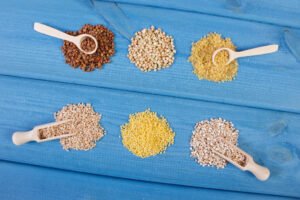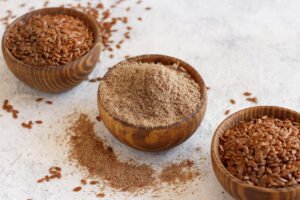In the vast world of dog care and nutrition, myths and misconceptions abound. One particularly enduring myth is that certain foods can cause aggression in dogs. This belief has led many pet owners to scrutinize their furry friends’ diets, worrying that what they feed them might be affecting their behavior. Let’s delve into this topic, separating fact from fiction and understanding what really impacts canine aggression.
Understanding Dog Aggression
Aggression in dogs can be attributed to various factors, including genetics, lack of socialization, fear, territorial behavior, or medical issues. While diet can influence a dog’s health and, by extension, their mood and energy levels, there’s no scientific evidence directly linking specific foods to increased aggression in dogs.
The Role of Diet in Dog Behavior
Diet plays a crucial role in a dog’s overall health. Nutritional imbalances or deficiencies can lead to health problems that may affect a dog’s temperament. For example, a diet lacking in essential nutrients could lead to illnesses that make a dog irritable or less tolerant of interaction, which could be misconstrued as aggression.
Protein and Behavior
One common myth is that high-protein diets cause hyperactivity and aggression in dogs. However, studies have not consistently supported this claim. While protein is essential for growth, repair, and energy, the quality and digestibility of protein sources are more critical than the quantity alone. Dogs with specific health issues might require adjustments in protein intake, but this is something that should be managed under veterinary supervision.
Food Allergies and Sensitivities
Food allergies or sensitivities can make a dog uncomfortable or sick, potentially leading to a change in behavior. If a dog is experiencing discomfort or pain due to a dietary issue, they may appear more aggressive, especially if they’re in pain when touched or approached. Identifying and eliminating the offending foods can help resolve these issues, but it’s more about alleviating discomfort than curbing inherent aggression.
Sugar and Carbohydrates
Another belief is that sugar and carbohydrates can cause spikes in energy and, subsequently, aggression. While excessive sugar and unhealthy carbs are not ideal for a dog’s diet, leading to obesity and other health issues, there’s no direct link between these and aggression. A well-balanced diet is key to maintaining stable energy levels and overall health.
Addressing Aggression: Beyond Diet
If a dog is showing signs of aggression, it’s essential to look beyond their diet. Consulting with a veterinarian can help rule out any underlying health issues. Additionally, working with a professional dog trainer or a behaviorist can provide strategies to manage and reduce aggressive behaviors effectively.
Tips for a Balanced Diet
While diet may not be directly responsible for aggression, feeding your dog a balanced, nutritious diet is crucial for their overall well-being. Here are some tips:
- Consult with Your Vet: Ensure your dog’s diet meets their nutritional needs, based on their age, breed, size, and activity level.
- Quality Ingredients: Choose high-quality, digestible protein sources and avoid fillers and additives that might cause sensitivities.
- Regular Check-ups: Regular vet visits can help identify and address any health issues before they lead to behavior changes.
Conclusion
The myth that certain foods can directly cause aggression in dogs is largely unfounded. While diet impacts overall health and can influence behavior indirectly through health-related discomfort, aggression is a complex behavior with multiple potential causes. A balanced diet, alongside proper training, socialization, and medical care, is the best approach to managing your dog’s health and behavior. If you have concerns about your dog’s diet or behavior, consulting with veterinary and training professionals is always the best course of action.

























